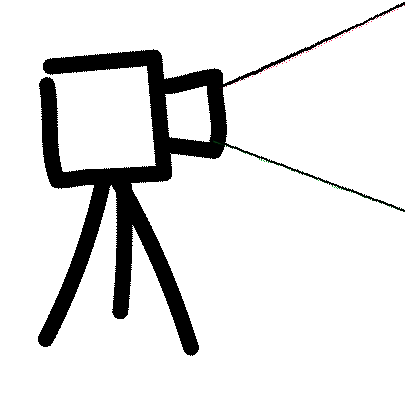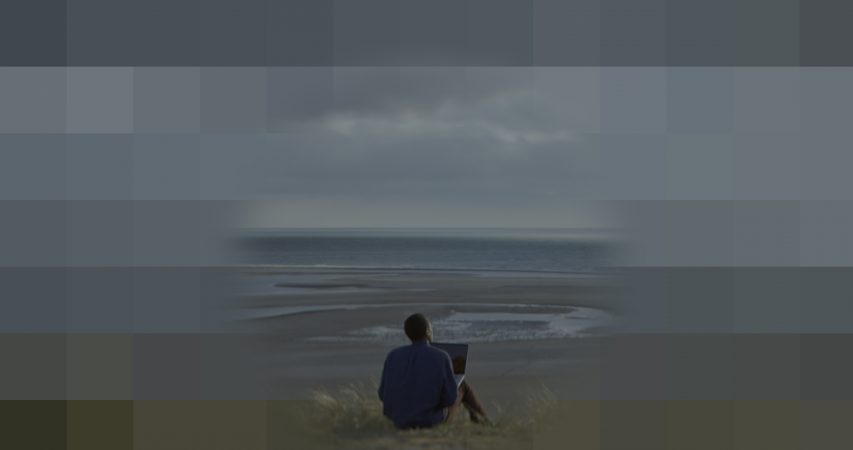Unsubscribe from absolutisms
“(…) the Yoruba sage does not subscribe to any form of absolutism. He recognizes the dualism in nature but does not attempt to reduce everything to one category or regard a natural feature as absolutely positive or negative.”
Sophie Oluwole wrote in her essay “Womanhood and Feminism in African Traditional Thought“.
By shining a light on the Yoruba tradition in philosophy, Sophie Oluwole leaned in full-weight to help open a massive door. Behind it, a space to have fair yet critical dialogues which exchange ideas between (sub)cultures. Here I would like to share a thought that crossed my mind in the process of writing the feature film involving Sophie’s work.
I realised that we use Time to discriminate. As Sophie would argue: Although discrimination itself is a very normal act – things are different – the mistake we make is that we are quick to attach certain values to these differences. Often taking the shortcut of black/white reasoning, in other words: subscribing to absolutisms.
Now, you can actually unsubscribe.


What is reality?
Sophie explained that in traditional African thought some different fundamental assumptions were made from those predominant in ‘classical’ Europe. It is the notion that complementarity guides the dual nature of reality. (Your hand has a back only because it has a front. So back is not opposed to front.) This is an idea Quantum Theory scientists have been familiar with since the early 1900s. But it is also an assumption previously made in many other parts of the world. Look at the ancient work of the Chinese Lao Tse for instance, and the concept of yin – yang.

| inside the boat and outside the boat
The Dark Ages
I learned most intimately, working on this project, how much was already known by generations before us. And then I mean to include generations from thousands of years ago. In any part of the world.
It makes me question the ‘superiority’ of our tech-infused society which puts itself at the highest height of human development. The only society more superior would be present in the future. It feeds into this inherent belief that we as human species are the best we could’ve been: We have had the chance to learn and develop more than those before us, because of this very gift of time.
This parallels with another reasoning I’ve come across quite often: The idea that (indigenous) people from Africa still live in ‘our’ dark ages in terms of development. As if time has not really passed there and therefore has not improved their state of being.
But this is a story we’ve invented. A fairy-tale we tell ourselves to make us feel better while stuck in our own day-to-day. It attaches a quality to time, which quite frankly Time doesn’t care about. If anything, time improves your chances of self-destruction as much as self-improvement.
And, arguably, our day-to-day human condition might have never really changed.
No news
The story I would like to tell with this film – like many (if not all) stories – is not entirely new. The ideas behind it aren’t. But that is also the point. I happily dive into some old news for the following reasons:
Because it is important to nurture critical thought. Something as old as time: Many, many different people have been saying it. Pretty much all of the time. Yet it has proven relevant to keep being reminded of time and again.
Also, in this light, it is good to look at similarities between various ideas (we have – or haven’t heard of before) and not generalise them for that reason.
Similarities are because they are not exactly the same. They are the ones deserving the most nuanced scrutiny.
(an idea also mentioned in Ifa)
And then, I think Africa probably ranks as the continent most subjected to preconceptions that are so grossly simplified they do not do justice to the complexities of life in general. If somebody would simplify me as a person in that way, I would feel very insulted. So let’s learn more about what’s up



The challenge
Now, let’s be honest. It is quite difficult and perhaps even painful to try and let go of structures you’ve been used to follow most of your time,
to be accommodative rather than tolerant (footnote 1),
to abandon self-deceit in favour of true progress (footnote 2),
to understand that there is no such thing as a clear-cut recipe to anything,
and that definitions are by definition limited.
But being able to see this, and then connect with other people, might just enrich your life beyond measure.
Now then, for the sake of modern culture:
(Whether clicking this button actually leads you anywhere is really up to you.)
Footnotes / Quotes from Sophie Oluwole
|1 Sophie wrote about this: The accommodative person, in the sense just explained, is someone who has learnt to disagree with the views of others without forcing personal ones down their throats. An accommodative scholar may, therefore, hold views and beliefs different from those of others but s/he may still concede the reasonableness of their views. All these, I wish to believe, are the genuine qualities of the true intellectual.
The near synonym of the term “accommodative” in this understanding is the word “tolerant” even though the idea of tolerance does not totally coincide with that of being accommodative. To be tolerant may mean no more than merely allowing others to hold views which one does not share. But this usually entails an implicit resentment to the views of other people. There is therefore, an unexpressed element of arrogance or self-conceitedness in the statement: “I am just tolerating you”. The sense of accommodativeness, here, is that of the avoidance of direct confrontation. To be accommodative means much more than just being tolerant. It entails the intellectual modesty of not being unnecessarily condescending or unnecessarily aggressive in dialogue.
The antonym of being accommodative in this positive sense is being dogmatic or fanatical. (from “Philosophy and Oral tradition“, 1999)
|2 Sophie wrote about this: (…) Hence, an ‘intellectual pain’ can only be justified if it results, in this case, from a feeling that we have for so long erred by mistaking a part for the whole. The alternative, of course is to avoid the pain by tenaciously holding on to what we know to be false. And although it is generally agreed that to err is human, self-deceit, we should also agree, is an unpardonable intellectual sin. (from “Witchcraft, Reincarnation and the God-Head”, 1992)
I made a short teaser as part of the development process of the feature film in progress.
Watch the trailer to this prologue film Afùwàpẹ́ now on Youtube.




